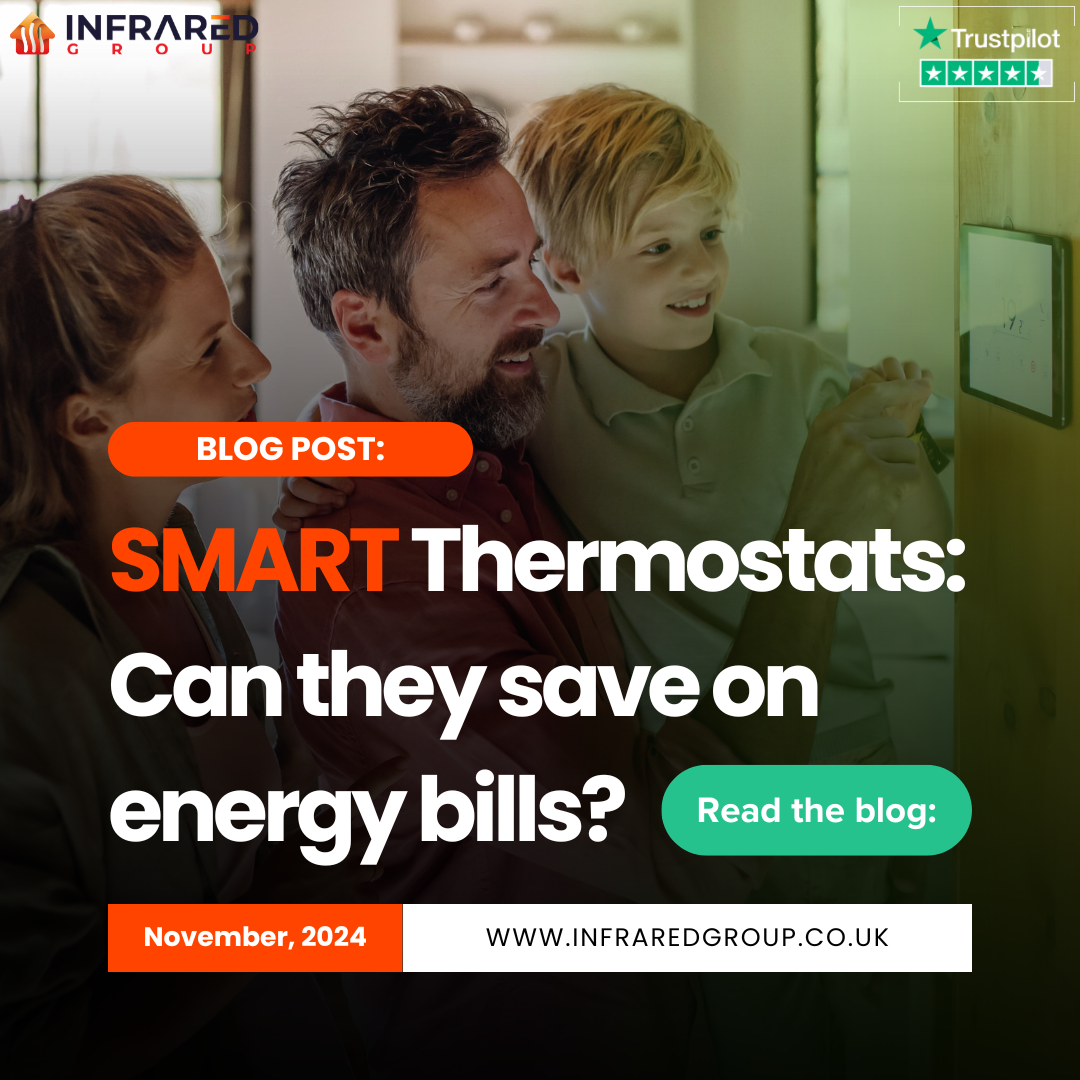Is a Heat Pump Better Than an Electric Heater? Evaluating Your Heating Options
When considering the best heating solutions for your home, homeowners often find themselves weighing the merits of heat pumps against traditional electric heaters. Both systems come with their unique sets of advantages and disadvantages, making it crucial to understand how each option fits your specific needs. This blog post will explore whether heat pumps truly offer a superior heating experience, examine their benefits and drawbacks, and introduce infrared heating panels as a more efficient and cost-effective alternative.
Understanding Heat Pumps
Heat pumps are designed to transfer heat from one location to another, typically extracting heat from the air, ground, or water and moving it indoors. While they are often promoted for their energy efficiency—sometimes producing more energy than they consume—this efficiency can depend heavily on various factors, such as the quality of installation and the condition of the property.
Benefits of Heat Pumps
1.Energy Efficiency:
Heat pumps can achieve efficiency ratings between 300-400%. This means they can produce several units of heat for every unit of electricity used, which can lead to reduced energy bills in ideal circumstances.
2. Environmental Impact:
By harnessing renewable energy sources, heat pumps can lower greenhouse gas emissions. They are often viewed as a more environmentally friendly option than traditional gas or electric heating.
3. Dual Functionality:
Heat pumps can provide both heating and cooling, making them a versatile choice for year-round climate control.
4. Potential for Increased Property Value:
A heat pump can enhance your home’s energy efficiency, which may be appealing to buyers as the UK moves towards greener energy solutions.
Disadvantages of Heat Pumps
While heat pumps have their benefits, there are significant drawbacks to consider:
1. High Initial Costs:
The upfront costs associated with heat pumps can be quite substantial, often ranging from £8,000 to £18,000, which includes the price of the unit and installation. This high initial investment can be a barrier for many homeowners.
2. Maintenance Needs:
Heat pumps require regular maintenance to function efficiently. This includes tasks like servicing the unit and checking refrigerant levels, which can lead to ongoing costs and inconvenience.
3. Home Suitability Issues:
Not all properties are suitable for heat pumps. Factors such as the existing heating system, insulation quality, and overall structural characteristics can limit their effectiveness. Homes with poor insulation or high heat loss may find that heat pumps do not perform as well as expected, leading to dissatisfaction.
4. Dependence on Additional Infrastructure:
Many homes may require additional radiators or improvements in insulation for heat pumps to work effectively. This added complexity can increase both the time and expense of installation.
Comparing Electric Heaters and Heat Pumps
When evaluating electric heaters, it is essential to consider their efficiency and practicality in comparison to heat pumps. Traditional electric heaters, such as storage heaters or panel heaters, generally have lower upfront costs and simpler installation processes. However, they can become less energy-efficient over time, especially in larger homes where heating demands can exceed their capabilities. While electric heaters offer convenience, they may not provide the long-term energy savings and environmental advantages that heat pumps claim.
Introducing Infrared Heating as an Alternative
As you consider your heating options, infrared heating panels present a compelling alternative to both heat pumps and traditional electric heaters. Here’s why infrared heating deserves your attention:
1. Energy Efficiency:
Infrared heating panels work by emitting radiant heat, which warms people and objects directly, rather than relying on heated air. This method is highly efficient, often leading to lower energy bills compared to both heat pumps and conventional electric heating systems.
2. Instant and Effective Heating:
Infrared panels provide immediate warmth, making them ideal for quick comfort. You can feel the benefits as soon as they are switched on, eliminating the wait time associated with other heating methods.
3. Zoned Heating Capabilities:
Infrared heating systems allow for zoned heating, targeting specific rooms or areas in your home. This can lead to significant energy savings, as you only heat the spaces you are using.
4. Minimal Maintenance:
Infrared heaters are known for their durability and require little maintenance compared to heat pumps. With no filters to replace or refrigerants to check, they offer a hassle-free heating solution.
5. Aesthetic Flexibility:
Infrared heating panels come in various designs, including models that can be mounted on walls or ceilings. This versatility allows you to incorporate heating solutions that seamlessly fit with your home’s décor.
7. Suitable for Various Spaces:
Infrared heating is effective in a range of environments, including homes, offices, and commercial spaces. They are particularly beneficial for buildings with high ceilings or open layouts, where traditional heating systems may struggle.
Why Electric Heating Offers a Superior Alternative to Traditional Gas Central Heating
In recent years, the debate over heating solutions has shifted significantly towards electric heating systems, such as infrared panels and heat pumps, as viable alternatives to traditional gas central heating. Here are several reasons why electric heating is becoming the preferred choice for many homeowners and businesses:
1. Environmental Impact:
One of the most compelling reasons to switch from gas to electric heating is the environmental benefits. Electric heating systems can be powered by renewable energy sources, such as solar or wind, significantly reducing carbon footprints compared to gas boilers, which rely on fossil fuels. According to the UK government's Climate Change Committee, transitioning to low-carbon heating systems is essential for meeting national climate targets and achieving net-zero emissions by 2050. Electric heating solutions align better with these goals by producing no direct emissions.
2. Efficiency:
Electric heating systems, especially infrared panels, offer superior energy efficiency compared to gas boilers. Infrared panels convert nearly all the electricity they consume into heat, achieving nearly 100% efficiency. In contrast, gas boilers typically operate at around 90-95% efficiency, and this can drop further if they are not well maintained. The efficiency of electric heating translates into lower energy bills, particularly in well-insulated homes.
3. Lower Maintenance Costs:
Electric heating systems generally require less maintenance than gas boilers. Gas systems involve regular inspections to ensure safety and compliance with regulations, including checks for carbon monoxide leaks and flue issues. On the other hand, infrared heating panels need minimal upkeep—typically just a clean occasionally to remove dust. This lower maintenance requirement can lead to substantial long-term cost savings.
4. Flexibility and Control:
Electric heating systems, particularly those integrated with smart technology, offer enhanced flexibility and control over your heating needs. Infrared panels can be easily zoned to heat specific rooms, allowing you to save energy by only heating occupied spaces. In contrast, gas central heating systems often heat the entire property, leading to energy wastage in unoccupied areas. Smart thermostats can further optimise electric heating systems, providing users with the ability to manage their heating remotely, set schedules, and adjust temperatures as needed.
5. Safety:
Electric heating systems are generally considered safer than gas systems. There is no risk of gas leaks, which can be dangerous and potentially life-threatening. Additionally, electric heating eliminates the risk of carbon monoxide poisoning—a significant concern with gas boilers. This aspect of safety makes electric heating particularly appealing to families and those with children.
6. Regulatory Changes and Future-Proofing:
With the UK government’s plans to phase out gas boilers in favour of more sustainable heating options, investing in electric heating systems is increasingly seen as future-proofing your home. This aligns with broader policy shifts towards decarbonisation, making electric heating a strategic choice for homeowners looking to comply with emerging regulations and government incentives.
Conclusion
In determining whether a heat pump is better than an electric heater, it is vital to consider both the advantages and disadvantages of each option. While heat pumps can offer impressive efficiency and environmental benefits, their high initial costs, ongoing maintenance requirements, and limitations on home suitability can make them less appealing for many homeowners.
Infrared heating panels present a strong alternative, delivering efficient, cost-effective, and flexible heating solutions that can accommodate various home sizes and layouts. By opting for infrared heating, you can enjoy the comfort and energy savings you desire without the complexities associated with heat pumps.
If you're interested in exploring the switch to infrared heating, check out our range of infrared heating panels and discover how they can transform your space into a warm and inviting environment.
Choosing the right heating solution for your home allows you to benefit from energy efficiency, comfort, and sustainability, paving the way for a greener future.




Leave a comment
All comments are moderated before being published.
This site is protected by hCaptcha and the hCaptcha Privacy Policy and Terms of Service apply.